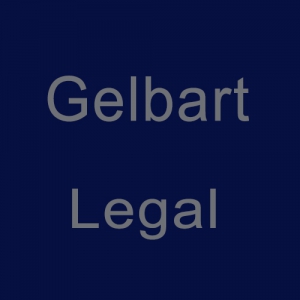Rent price cap has been passed – and now what?
Now there it is – the so-called rent price cap. On 30.01.2020, the Berlin House of Representatives passed by a majority vote the Law on Rent Price Cap in the Housing Sector in Berlin (MietenWoG Bln), which had already been the subject of extremely controversial discussion in the run-up to the vote. The law largely complies with the draft bill of the Berlin Senate of 28.11.2019 with modifications based on the resolution recommendation of the Committee for Urban Development and Housing of 23.01.2020. It is expected to come into force by public announcement soon.
But what does this mean in concrete terms for tenants and landlords?
Affected rented housing:
With a few exceptions, basically all housing actually existing in Berlin is affected. The only exception worth mentioning are those living spaces that have become ready for occupancy for the first time as of 01.01.2014 or that were otherwise uninhabitable and have been restored at considerable expense (comparable to a new building). Nevertheless, an estimated 1.5 million Berlin apartments fall within the scope of the law. The period of validity of the law is initially limited to 5 years from the date on which the law will become effective (Article 4 para. 2 MietenWoG).
Regulatory content:
 The core contents of the law are, on the one hand, the capping of existing rents (rent stop, Article 1 para. 3) at the level of the rent applicable on 18.06.2019 (key date regulation). In the case of new rentals and re-letting between the key date and the date of entry into force, the rent agreed upon during this period will apply. It is true that legal regulations generally only take legal effect from the time a law comes into force – and thus in a future following the public announcement. However, due to the fact that the law is retroactive to the effective date, it has retroactive effect to a point in time prior to the effective date. Whether this is a permissible breach of the prohibition of retroactive effect under the rule of law, however, is controversial.
The core contents of the law are, on the one hand, the capping of existing rents (rent stop, Article 1 para. 3) at the level of the rent applicable on 18.06.2019 (key date regulation). In the case of new rentals and re-letting between the key date and the date of entry into force, the rent agreed upon during this period will apply. It is true that legal regulations generally only take legal effect from the time a law comes into force – and thus in a future following the public announcement. However, due to the fact that the law is retroactive to the effective date, it has retroactive effect to a point in time prior to the effective date. Whether this is a permissible breach of the prohibition of retroactive effect under the rule of law, however, is controversial.
On the other hand, the law sets different upper limits for the rental rate. These upper limits differentiate according to the year of construction or the first time the apartment was ready for occupancy, as well as according to its fixtures and fittings; the stipulated values are based on the values of the rent index of 2013 and are therefore lower than the current rent index values. The upper limits are the benchmark in particular for the prohibition of excessive rents and for the question of the possibility of apportioning the costs of modernisation measures (upper limit of rents, Article 1 §§ 4-7). According to these provisions, rents are prohibited if they exceed the relevant upper limit by more than 20% and have not been approved as an exception (hardship case, Article 1 para. 8); in order not to act in violation of the prohibition, landlords would therefore have to reduce the rent to the permissible level – however, this prohibition would not be in force until 9 months after entry into force (Article 4 para. 1 sentence 2). The setting of such upper limits, in particular the prohibition-induced reduction of existing rents, is not uncontroversial in view of the constitutionally established guarantee of ownership.
In addition to the prohibition of agreeing and demanding rents higher than the capped rents or those imposed by the upper limits, however, it is also prohibited to receive them. In addition, the law sets out various obligations of landlords to provide information, notification and cooperation (among other things, landlords must provide information on the circumstances for calculating the upper limit without being priorly requested to do so and within 2 months after the law comes into effect). If these prohibitions and obligations are violated, these violations are punished as administrative offences with a fine of up to EUR 500,000.
Proceedings:
While disputes with tenants due to the so-called ” rental price brake” are to be resolved before the competent civil courts, proceedings under the Rental Housing Act are settled by administrative authorities or, with the exception of disputes regarding administrative fines, actions are to be brought before the administrative courts. This must be observed with regard to the lodging of appeals (temporary legal protection, lawsuit).
If, on the other hand, the legal issue is whether and to what extent the MietenWoG is effective beyond the individual case, and in particular whether it is in accordance with the constitution, the State or Federal Constitutional Court should be called upon. Only these courts have the (general) power to reject formal laws. Constitutional doubts exist not only with regard to the admissibility of the retroactive effect provided for by the law and the possible constitutionally unjustified violation of the ownership guarantee, but above all with regard to the legislative competence of the Land of Berlin – i.e. can or may the German federal states under the German Constitution make such a legal provision at all. Even before the law was passed, several announcements were made publicly that the law would be put to the test and that corresponding proceedings would be pending before both the State and the Federal Constitutional Courts – the outcome is still uncertain.


